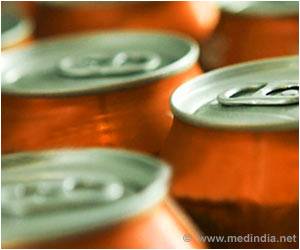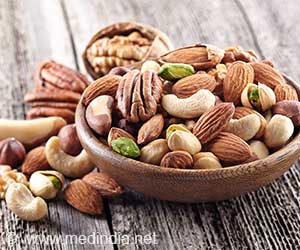Study states that consumption of lower calorie sugars may not be as beneficial to health as previously though.

- The type of natural sugars found in fruits and honey is fructose, which is said to be lower in calories.
- But a recent study states that low calorie sugars may not decrease the risk of developing long-term health conditions.
- The study states that the sugar content present in fruits and fruit juices, is more damaging to health than glucose, even if taken in the same quantity.
TOP INSIGHT
Excess intake of all types of sugars have been found to increase the risk metabolic disorders and heart diseases.
Though fructose is lower in calories, researchers suggest that calorie in sugars may not be the only factor that affects the long-term health.
The type of sugar may also play a role in increasing risk factors for heart disease, diabetes and other chronic diseases.
Study
Researchers conducted a study to compare the effects of two types of sugars-glucose ad fructose, on metabolic and vascular function.
- one group was given liquid solution of glucose (the form of sugar found naturally in the body after carbohydrates are broken down)
- second group was given fructose ( the sugar found in fruit and fruit juices)
- control group that was given plain drinking water
The rats went on receiving the sweetened solutions for eight weeks, roughly equivalent to a person eating large amounts of sugar for six years.
Findings
The findings indicated that in comparison to the glucose group, the rats in the fructose group, had addition to higher weight gain. They also had more markers of vascular disease and liver damage.
These markers were high triglycerides, decreased fat burning in the liver (a factor that can contribute to fatty liver) and impaired relaxation of the aorta, which can affect blood pressure.
In comparison to the control group, both sugar-fed groups showed increased calorie intake. But the total calorie intake was higher in of the glucose-fed rats than the rats that were given fructose.
Despite this difference in calorie intake, the fructose group exhibited a significant increase in final body weight.
The results suggest that an increase in the amount of calories consumed is not the only factor involved in long-term health risks.
Also the rats fed with glucose exhibited less adverse metabolic and vascular effects.
Hence the study clearly indicates that it is not only the quantity of sugar but also the type of sugar that affects long-term health risks like diabetes, heart diseases etc.
The paper was published in the American Journal of Physiology - Heart and Circulatory Physiology.
Reference
- Gemma Sangüesa et al. TYPE OF SUPPLEMENTED SIMPLE SUGAR, NOT MERELY CALORIE INTAKE, DETERMINES ADVERSE EFFECTS ON METABOLISM AND AORTIC FUNCTION IN FEMALE RATS. American Journal of Physiology - Heart and Circulatory Physiology; (2017) DOI: 10.1152/ajpheart.00339.2016
Source-Medindia
 MEDINDIA
MEDINDIA




 Email
Email










